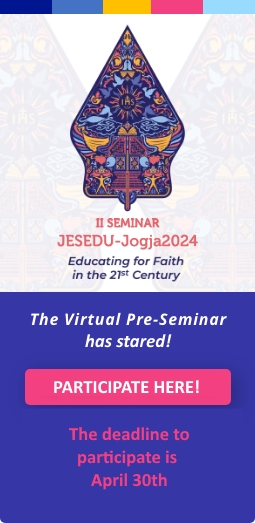Father Adolfo Nicolas S.J. describes the path to human excellence through the formation of people of ethical conscience, increase in compassion, acquisition of competence, and the commitment to justice (the so-called four Cs: of conscience, compassion, commitment, and competence). It is Fr. Nicolas’ understanding of Human Excellence that inspired the document: Jesuit Education Aims to Human Excellence (2015). There is also this interesting interview with Father Adolfo Nicolas, who tells us a bit more about Jesuit education.
In this article, we would like to highlight resources that can help us to go deeper into the path of acquisition of competence for students and provide practical resources for teachers in our global community to use or adapt to their context in the classroom.
“Competence, because they must be: 1. Capable of creating, understanding and using knowledge and skills to live in his/her own context and transform it; 2. Able to be part of the changing and diverse world creating a life project for others and with others; 3.Able to develop the intellectual, academic, emotional, and social skills required for professional and human achievement.” (271) A Living Tradition. Global Identifier#9 “Jesuit Schools are committed to Human Excellence”
In order to help or guide students into the path of acquisition of competence we would like to propose going back to reading and reflecting on what the Competent Person is. For this, we propose watching or reading this excellent lecture, presented at SIPEI in 2014, through which Montserrat del Pozo reflects on the Competent Person. “This paper tries, on one hand, to shed light on what it means to be a competent person in the 21st century and, on the other hand, to reflect on a new understanding of learning that grows out of the forces of change present in each moment…”, “competent students can make decisions, solve problems, generate new approaches in real contexts and put their knowledge to the service of the society in which they live.”

Additionally, you could include in your classroom different classroom materials with which students can develop enough knowledge to be able to make decisions and generate new approaches to solve problems in real contexts. For example, how about using this lesson plan “G6 – L4: My place in the world” of the Series of Lessons “Empowering Students to Improve the World in Sixty Lessons” created by Fernando Reimers?
This lesson will expose students to global statistics and disparities, and encourage them to consider their own personal responsibility. Students will be able to:
● Put themselves in another’s shoes and think critically about their actions.
● Practice problem-solving and collaboration with classmates.
● Understand how conflicts play out on a global level.

We encourage you to watch and download both of these great resources, and also to share in this context, what has your educational apostolate done? What should your educational apostolate be doing?
You can find more classroom resources like this in the Classroom Materials section of Educate Magis.
If you have useful resources on the Competent Person to help deepen our knowledge on this dimension of the 4C’s, please email them at info@educatemagis.org. Thank you!
